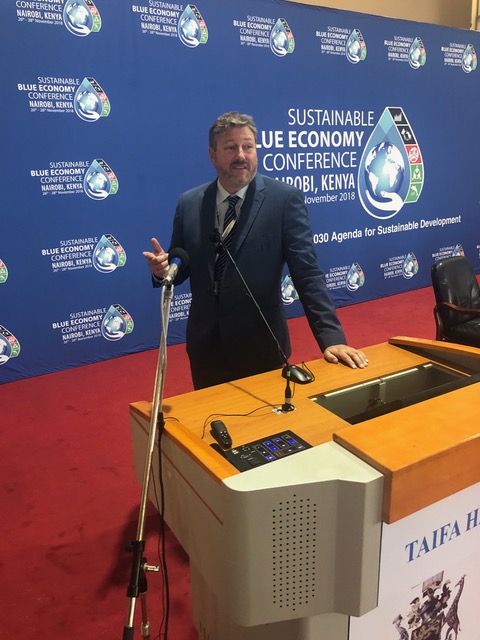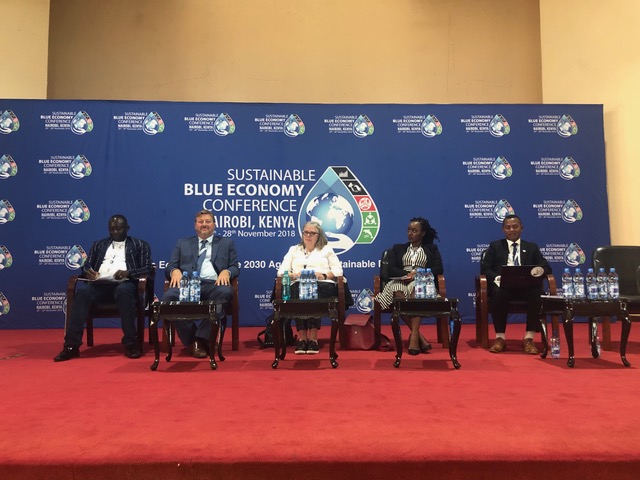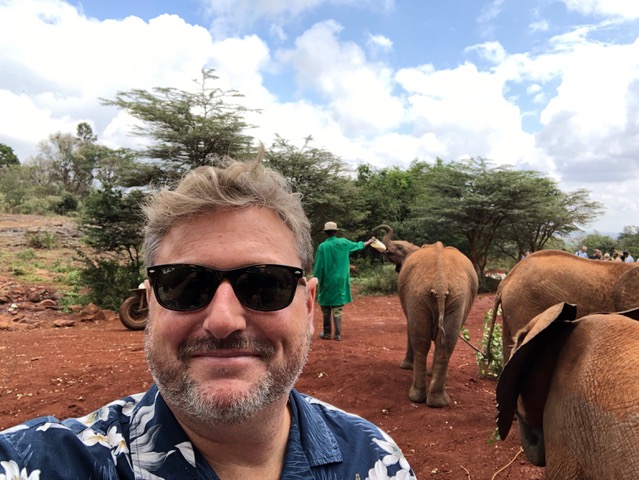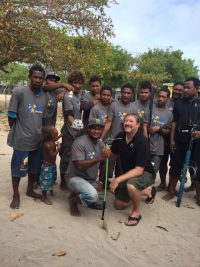Paying Forward to the Sea
- C.F. Goldblatt

- May 18, 2020
- 3 min read
Updated: Dec 28, 2020
In 2003, five friends and I were cruising at 20 knots through the dead of night. Our destination was to be San Clemente Island, 50-miles to the west of San Diego. The calm of that fateful November night was shattered in an instant when we were T-boned by a fuel barge heading north. The 45-footer that I was in was smashed to bits as I gave the order to abandon ship. I jumped and found myself alone, bleeding, treading water as our boat sank and the barge went on. The chilly winter water had little impact on my adrenalin-soaked blood vessels.
I managed to deploy the escape pod attached to the sinking bow section of the boat. With a loud hiss it deployed and to my great joy two others found the raft and slid in. A few minutes later the boat owner and his 15-year-old daughter who had been dragged under the barge found the raft and got in. As we froze and bled through the night, help was nowhere to be found.
The next day at the crack of dawn, as we drifted south of the border, I lit the last flair and like an angel coming to save us, the U.S. Border Patrol saw the smoke plume and came to our rescue.
This incident reframed my relationship with the sea and with my appreciation to life itself as none of us should have survived that night, yet we are all delivered by some force of divine providence.
From then until now I have spent every waking hour trying to repay the debt for my salvation. I do my best to convey all that I know about the sea in my books, but I also launched an ocean health non-profit called the Fish Reef Project. We deploy new marine life habit and remove plastics in Africa, the U.S. and Papua New Guinea.
Fish Reef Project has taken me around the globe and we have even been voted in by the United Nations Seabed Authority as a permanent observer. Our status makes us true ocean ambassadors and provides us rare access to helping form global oceans policy. Our voice and projects have become central to the planning of man-kind’s best relationship with the sea. We work tirelessly to insure a healthy ocean for future generations while fighting for mankind to obtain its food from the sea as the two can go hand in hand under the right conditions.
The attached images are of me speaking recently at Nairobi University in Kenya. I was invited by the United Nations to attend the African Blue Economy Summit in Kenya to help contribute to the master framework that will manage Africa’s oceans for the next several generations.
When I get tired or feel defeated as a result of bearing such a heavy mantel, I think to myself, “What would Luke Dodge do?” And before long, in a case of life imitating art, I find new motivation and charge ahead without fear of consequence with good humor; and most of all I am reminded that humans are part of the cycle of life, we are part of nature and for us to truly maintain respect for the sea, we must stay in touch with what is left of our wild inner-selves, the hunter gatherer, the tribesmen, the warrior and this is the essence of who Luke Dodge really is.










Comments